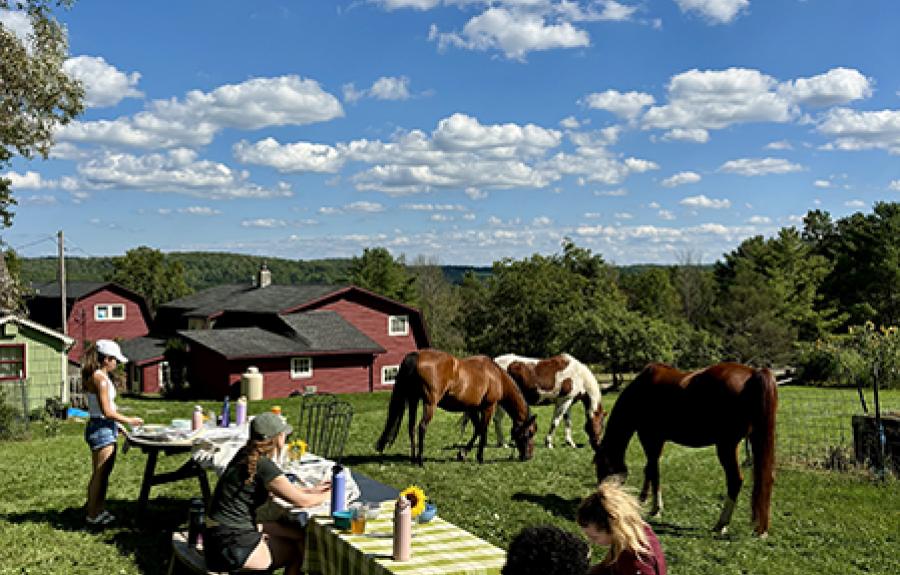In recent decades, there has been an increasing overlap between the fields of art and science; we see this convergence from multiple directions, including in contemporary art movements, science and technology studies, and higher education. Jenna Lilly’s research examines this art + science intersection through the example of art residencies at scientific field stations and marine labs (FSMLs). Her focus is on the outcomes of and barriers to these programs for the main stakeholders involved: artists, scientists, and program administrators.
This field study is one part of the experiential methods approach for Lilly's master’s research. Site visits to art residencies in rural New York will provide firsthand knowledge of this type of program, and they will ground Lilly’s qualitative and quantitative data collection methods in place. Over the course of the study, she will write field notes, engage in conversations with administrators and artists, take photographs, and create art. In addition to writing and photographs shared on the Rural Humanities website, Lilly plans to share her findings along with a list of rural New York art residencies on her personal website and the Cornell Eco Arts page for public access. Ultimately, this field study will be incorporated into her thesis, which will be presented to the Department of Natural Resources and the Environment as well as at the Organization of Biological Field Stations annual conference in the fall of 2026.
Collaborator:
Jenna Lilly, Department of Natural Resources and the Environment

